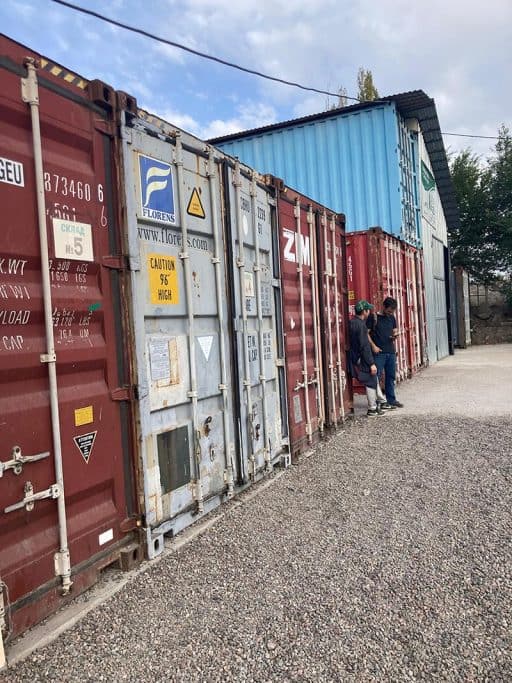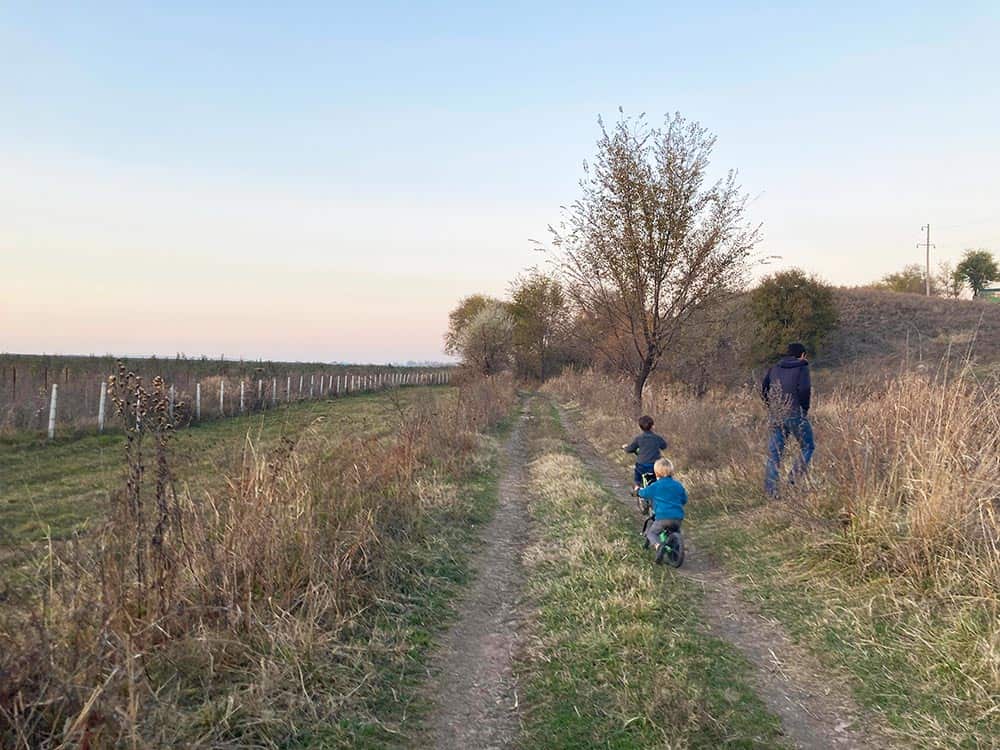Reflections on a Missionary Identity
The mission field is everywhere, and bearing witness to the gospel wherever we are is the call and identity for all believers.
By Max Z. (name changed)
The other day, during a cold-call walk-in sales visit, someone jokingly asked me, “Why are you trying to sell me feed? Are there not enough dollars in America?” It was a light-hearted moment, but the question captured something I’ve been asked in more serious tones many times before: why would someone leave the U.S. to sell animal feed in an economically depressed country?
Last fall, I moved to Central Asia to work with a Business for Transformation (B4T) company that sells animal feed, among other things. One of the company’s goals is to provide economic infrastructure that supports local believers—especially in rural areas where Christian witness is especially sparse.

Whenever people ask me why I’m doing this, they usually start to understand after I explain my background: I grew up in Eastern Europe, developed a passion for job creation in post-communist economies, studied economic development in university, and carry a desire to bear witness to the gospel where there are fewer believers (I share this last point when appropriate). Explaining my journey has helped me reflect deeply on who I am, why I do what I do, and why I do it where I do it.
My parents moved from the U.S. to Eastern Europe to help plant a church. Friends back in America often called them “missionaries.” As a third-culture kid (TCK), I remember bristling when we were “welcomed home” during visits to the U.S., and I didn’t like being asked what it was like living on the mission field. I felt like my village in Eastern Europe was my home. I also wondered: Why didn’t they consider their Midwestern hometown in the U.S. a mission field?
I’m encouraged that more people in the American church are now starting to view themselves as missionaries. I was glad to see LMC’s goal to “mobilize every member as a missionary.” Wherever I live, I want to have an identity as: a citizen of heaven/a member of the household of God (Eph. 2:19), a royal priest who has been called out (1 Peter 2:9), a foreigner (1 Peter 2:11; Heb. 11:13-14) and an ambassador for Christ (2 Cor. 5:20), who seeks the welfare of the city where I live (Jer. 29:7), loves neighbors (Matt. 22:39), and proclaims the good news (1 Peter 2:10, 2 Cor. 5:19).
I didn’t like being asked what it was like living on the mission field. Why didn’t they consider their Midwestern hometown in the U.S. a mission field?
After over a decade in the U.S., I’m now living overseas again. In many ways, who I am and what I do hasn’t changed:
- Like my previous company in the U.S., my current workplace aims to “seek the welfare of the city” (Jer. 29:7) through business.
- My wife and I remain committed to discipling our children and training them in the way of Jesus.
- I continue to build relationships with neighbors and coworkers, looking for ways to shine God’s light.
- We are a part of a local church community, and we seek to serve, be held accountable, and build each other up in the faith. We see the church as the vehicle of God’s work in the world.
- I still volunteer my time to support B4Ts,
- including through the work of VMMissions’ B4T subsidiary.
- I continue to wrestle with how and when to share the good news with those around me.
But there are key differences too:
- Language and culture make communication and relationship-building more difficult and slower.
- As a TCK from post-communist Eastern Europe, Central Asia feels, in some ways, more like home than the U.S. ever did.
- Unlike in the U.S., our company’s core mission explicitly includes facilitating gospel proclamation and discipleship.
- Our support network looks different: we meet weekly with the family of my co-director, monthly with a VMMissions coach, and I’ve recently joined an online peer group of other B4T workers. We have fewer close friends near us.
- The economic need is greater here.
- So is the spiritual need. There are far fewer Christians in Muslim-majority Central Asia, particularly in rural areas.

In the spirit of Andrew Scott’s book Scatter: Go Therefore and Take Your Job With You, we moved to Central Asia because there are fewer believers here, and because God had put job creation in the post-communist world on my heart. As I think about who I am and what I do in Central Asia, I am coming to accept the identity of being a missionary, but as something that all believers are called to.
While there is a particular need for more Christians to move and to bear witness in places where the church is not yet, this impulse, this DNA of being sent ones, should be the DNA of the whole church. The church should think of everywhere as a mission field.
I pray that the local church in the U.S. and the local church in Central Asia both understand themselves as missionaries and see their whole lives including their workplace as a mission field. As disciples of Jesus, we are each sent ones—carrying Jesus’ authority and mandate to make disciples. May we all carry that identity—wherever we go.
Max Z. (name changed) is a VMMissions Marketplace Worker serving with his family in Central Asia.
